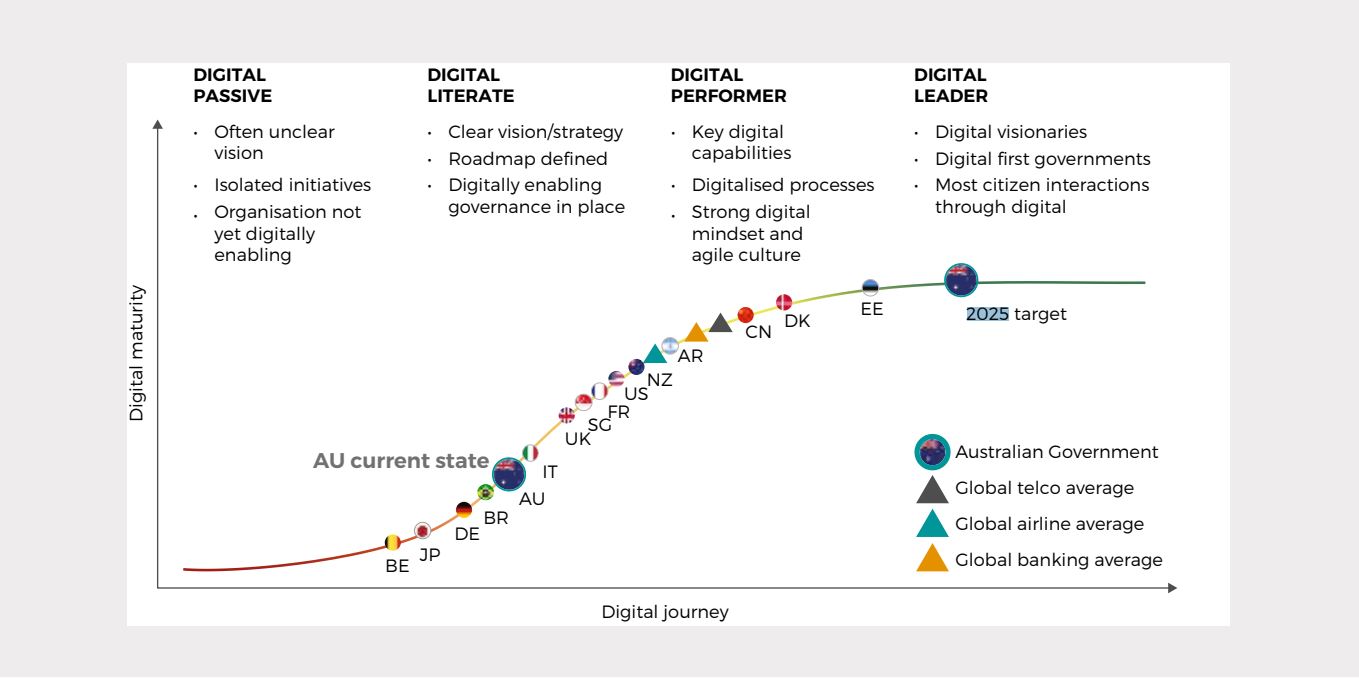Public sector tech workers are to see a boost in status, and maybe even pay, in a Federal Government push to make the Australian Public Service a global leader in digital services by 2025.
The ambition was outlined in the Independent Review into the APS which found the Australian public sector currently lags its international counterparts in digital maturity, falling between Italy and Brazil while sitting well behind leaders Denmark and Canada.
Led by CSIRO Chairman David Thodey, the 18-month review found APS senior management didn’t see digital transformation as a priority, with a survey of its top 200 managers revealing only a little over one third seeing the need for APS change as a high priority.
The report also found agencies rely on ageing and complex systems, leading to high running costs and operating constraints. These problems were exacerbated by current governance, funding and procurement models which lead to large one-off projects, rather than more flexible and agile delivery models.
To solve the public service’s lagging technology practices, seven of the review’s 40 recommendations directly related to tech functions with proposals including establishing separate digital and data professions within the APS and a government wide audit of ICT capabilities.
In its response to the review, the government agree to establishing the digital professions as part of the effort to boost the APS’ capability in the sector. This will see enhanced career paths for public service ICT workers.
The government agreed wholly or in part with all of the seven recommendations, only differing with the panel in stating some of the reforms were already underway in already announced initiatives.
Other IT-related recommendations accepted by the government included improving the funding and management of the APS’ digital functions, building the public sector’s data and digital expertise, and making data open by default.
ACS welcomed the recommendations, noting the size of public sector employment in Australia means digital transformation of the APS offered a strategic opportunity for the broader Australian economy.
In its August submission to the APS review, ACS recommended the public sector’s human capital be recognised and treated as a strategic asset with recruitment, investment and training to prepare for emerging technology areas such as artificial intelligence, cyber security and data science.
“As we stated in ACS’ 2019 election manifesto, public sector employment makes up 19% of the nation’s workforce and the APS is an enabler of technology and knowledge transfer for the broader economy," ACS President Yohan Ramasundara said.
“So, the technology aspects of the APS review are important beyond the bounds of the public sector.
“It’s particularly heartening to see the government’s commitment to invest in the public sector’s data and digital skills and, as stated in our 2019 election manifesto, we would also like to see APS recruitment strategies include specific targets for emerging technology areas such as artificial intelligence, machine learning and cyber security.
“That view was underscored by the 2019 Digital Pulse report, which found that skills development was the highest priority in addressing Australia’s skills shortage. This shortage is expected to see the economy needing an additional 100,000 ICT workers by the end of 2024.”
While most of ACS’ recommendations to the inquiry made their way into the final report, there was no mention of better managing outsourcing, pointing out that risk assessment, risk management, and technology governance accountabilities cannot be outsourced.
The report’s recognition that the effective use of data and sharing between government agencies will support better services was also welcomed.
“However, to maintain Australians’ confidence and trust in providing data to government agencies, it is essential to assure citizens their privacy will be protected,” Mr Ramasundara continued.
“This was a key recommendation of ACS’ recent Privacy Preserving Data Sharing Frameworks report which described a framework for privacy-preserving data sharing.”











